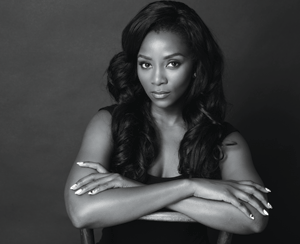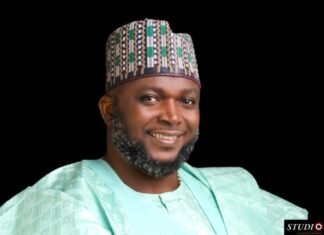Genevieve Nnaji has every reason to be mad with the press, whom she said falsified stories about her, especially about having problems with Omotola Jalade-Ekeinde and an affair with D’banj. Perhaps this is because the bad publicity has not been that bad after all. As the premiere of Road to Yesterday approaches, she speaks to Assistant Life Editor, TERH AGBEDEH, about the film and many other things her fans would like to know.
You have chosen your roles very well; would you say that has helped you in the Nigerian movie industry?
I have been in control of what I am a part of. I believe in spirituality; I believe that your mindset can reflect on the success of whatever you do, and from time immemorial I have had to give my all to whatever I intend to be part of. So I think who I am reflects on my work and not the other way round.
How different is Road to Yesterday from all other movies you have done?
It is a love story told differently; it is a different kind of film, a different kind of love story. So it is something for everyone to look out for. It is not expected and I think it is good for the industry. For us to diversify, not be in a box, we can tell different kinds of stories as long as it is true to us, but let it be told in a different way because we are all different. It is a romantic story, but in the end you will ask yourself exactly what it is.
You should divulge much more than that.
Oh, no.
One would have thought that you would mention that it is your production debut?
I tend to forget that because I am more excited about the product that we have come up with. And it is not about me producing, because this film has been a collective effort. If not for Ishaya (Bako), I probably would never have gotten someone that could understand the story in my head. It is my story, but it was scripted by Ishaya. It took someone like Ishaya to actually bring to light what was going on in my head. So, it has been a collective effort, and I just can’t wait to showcase what we have come up with.
After the premiere on November 27…
It actually goes to the cinemas on November 27. It will premiere a week before that.
Are you doing festivals after the cinema run?
No.
Why not?
Let’s see how it goes.
Have you entered it in any award?
We entered it for about two or three festivals, not awards. I want things to be by merit; I want them to watch the film and say, wow, this is a good one. That is very important to me. But even if we don’t get into any festival, we intend to continue to produce. We intend to target the kind of market which will definitely crop up; with our own content made by us, for us. It is important that we export our own product.
There are those who like to categorise Nollywood into the old and new; where do you belong?
It is ridiculous to think that there is an old and there is a new. The new are the products of the old. The Emem Isongs, the Desmond Elliots, the people who are doing films, who are still producing, are all products of old Nollywood. Or whatever they call it. But the thing is; why is it so hard to accept that Nollywood is rebranding? There will always be people making bad films and we should be calling them ‘non Nollywood’. We shouldn’t change who we are because we have some (…). So, I am Nollywood, I don’t know about old or new.
If you had to advise your 18-year-old self, what would you say to her?
That question ties with the theme of the film, Road to Yesterday. If you have to take something back from yesterday, would you have to give something? My professional life?
Generally.
Professionally, probably nothing because I like who I am, today. I like who I have become. I like my vision (where I see myself in the future) and I believe all the experiences have added to making me who I am, to my growth, to revamping my thought process.
What is the biggest lesson you have learnt?
I have come to realise that people are who they are regardless of what you want them to believe. You can’t change the mind of people out there; they are going to believe what they want to believe based on their personality. It has nothing to do with the truth or lies. One important thing I have also realised is that you are what you surround yourself with. They say that birds of a feather flock together; I say birds of a feather take off together; they flock, fly and perch. So it is who you perch with that you should be concerned about, not who you take off with.
The press seems to have been terrible to you.
That’s right. You guys know what you are doing.
So which of the stories about you embarrassed you the most?
(Laughter) Almost all of them have been falsified, untrue. They have been made up. But I am not mad. Like, they haven’t broken me. If they broke me, then I would have a problem. Then I should be worried. But they have only made me stronger. Hopefully, they have learnt and grown and moved forward. The press did what they had to do because they felt they needed to do it to sell. It was my choice to decide whether that was what shaped who I was.
There are those who would argue that it was a symbiotic relationship; after all, since there is no such thing as bad publicity. Did all the bad press help you?
It played its role, I think, because, for me, people knew my name before they knew my face. So they had to go out and find out who this person was and that was how I think I started selling my movies.
And this beef between you and Omotola?
There is no beef; it is just part of the propaganda by the press. There can’t be beef between us.
You never refuted the D’banj tag though?
Nobody needed to refute it.
Does that mean it wasn’t true?
That means, even if it was, nobody would have known because that was completely personal and Genevieve does not talk about her personal life.
How is your clothing line doing?
It is doing very well. The first collection sold out on Jumia and I am very grateful. I thank God. I have been working on the second collection. Unfortunately, we had to slow down because of the movie.
What other business are you into?
I am also into real estate with my partners in Abuja.














